Navigating the world of manufacturing and procurement can be a complex endeavor, especially when it comes to sourcing high-quality products like air fryers. It’s not just about finding a factory that can produce what you need; it’s about ensuring that they meet your standards, have a reliable track record, and can offer a sustainable partnership. In this article, we delve into the nuances of selecting a trustworthy air fryer factory, focusing on the importance of quality assurance, compliance, factory visits, networking, and understanding the true value of what you’re paying for.
Understanding the Importance of a Reliable Air Fryer Factory
Navigating the bustling landscape of kitchen appliances, the air fryer has emerged as a beloved kitchen gadget for its ability to offer healthier cooking options without sacrificing flavor. But with a plethora of manufacturers out there, understanding the importance of selecting a reliable air fryer factory is paramount. Here’s why:
The quality of an air fryer is not just about its ability to cook crispy foods with minimal oil; it’s about the craftsmanship, durability, and safety it embodies. A trustworthy factory ensures that the air fryers they produce meet stringent quality standards, which is crucial for both the end consumer and the reputation of the brand selling the product.
Firstly, a reliable air fryer factory has a proven track record of delivering consistent product quality. They understand that each air fryer is not just a piece of equipment but a reflection of their brand. This means they invest in high-quality materials, advanced manufacturing processes, and rigorous quality control measures to ensure that every unit that leaves their facility is up to par.
Secondly, safety is a non-negotiable in the kitchen appliance industry. A reputable factory adheres to safety regulations and standards, ensuring that their air fryers are free from defects that could pose a risk to consumers. This peace of mind is invaluable, especially when dealing with products that come into direct contact with food.
Moreover, a reliable air fryer factory is transparent about their manufacturing processes. They are not afraid to show how their products are made, from the sourcing of materials to the final assembly. This transparency builds trust and allows potential buyers to understand the level of care and attention to detail that goes into each air fryer.
When you choose a factory known for its reliability, you’re also selecting a partner that can offer after-sales service and support. These factories are more likely to have customer service teams ready to assist with any issues that may arise, which is crucial for maintaining customer satisfaction and loyalty.
Innovation is another key factor. A factory that is always looking to improve its products is likely to be more forward-thinking and capable of meeting the evolving needs of the market. They invest in research and development to bring new features and technologies to their air fryers, ensuring that consumers get the latest and greatest in kitchen technology.
The reliability of an air fryer factory also extends to its supply chain. A robust supply chain ensures that the factory can meet demand, deliver products on time, and manage inventory efficiently. This is especially important for retailers and distributors who need to rely on consistent stock levels to serve their customers.
Additionally, a reputable factory is environmentally conscious. They understand the importance of sustainable practices and strive to minimize their environmental footprint. This not only benefits the planet but also appeals to consumers who are increasingly concerned about the impact of their purchases on the environment.
Furthermore, a reliable air fryer factory is likely to have a strong network of distributors and retailers. This network can be a valuable resource for brands looking to expand their market reach. By partnering with a factory that has established relationships with key players in the industry, brands can benefit from a streamlined distribution process.
Lastly, the cost of production can be a significant factor in the long run. A factory that optimizes its production processes to reduce costs without compromising on quality can offer more competitive pricing. This can be a game-changer for businesses looking to offer affordable yet high-quality air fryers to their customers.
In conclusion, the importance of a reliable air fryer factory cannot be overstated. It ensures the production of safe, high-quality products, offers after-sales support, fosters innovation, maintains a sustainable supply chain, and provides valuable partnerships for growth. By choosing the right factory, businesses can secure their position in the competitive kitchen appliance market and provide their customers with the best possible products.

Key Indicators of a Trustworthy Manufacturer
When it comes to selecting a trustworthy air fryer manufacturer, there are several key indicators that can help you make an informed decision. Here’s a closer look at what to consider:
-
Longevity in the Industry: A manufacturer that has been in business for a considerable amount of time is often a good sign. It suggests stability, experience, and a track record of delivering quality products.
-
Customer Reviews and Testimonials: Look for reviews and testimonials from past customers. Positive feedback can indicate that the manufacturer is reliable and customer-focused. Pay attention to consistency in the feedback across different platforms.
-
Product Range and Innovation: A reputable manufacturer typically offers a diverse range of air fryers, catering to various needs and preferences. They should also be known for innovation, with features that set them apart from competitors.
-
Certifications and Compliance: Check if the manufacturer holds relevant industry certifications, such as safety or quality standards. Compliance with international regulations can ensure that the products meet high-quality standards.
-
Quality Control Measures: A trustworthy manufacturer will have stringent quality control processes in place. This includes regular inspections, testing, and adherence to strict manufacturing protocols.
-
After-Sales Service: The level of after-sales service can be a significant indicator of a manufacturer’s reliability. Look for companies that offer comprehensive support, including warranty, repairs, and customer assistance.
-
Supply Chain and Sourcing: Understanding how the manufacturer sources its components and materials is crucial. A reliable source means better quality control and more sustainable practices.
-
Transparency in Business Practices: A manufacturer that is transparent about its operations, pricing, and production processes is often more trustworthy. This includes clear communication about lead times, shipping, and payment terms.
-
Industry Recognition: Awards, accolades, and recognition from industry associations can be a testament to a manufacturer’s reputation and the quality of its products.
-
Responsive Customer Service: A manufacturer with responsive customer service is more likely to address any issues promptly and effectively. This includes being accessible through various channels, such as email, phone, or live chat.
-
Customization and Flexibility: The ability to customize products or offer tailored solutions can be a sign of a manufacturer’s commitment to meeting specific customer needs and preferences.
-
Financial Stability: A financially stable manufacturer is less likely to go out of business, leaving you with subpar products or no support. Check for signs of financial health, such as a strong balance sheet or consistent revenue growth.
-
Environmental Responsibility: In today’s market, environmental responsibility is increasingly important. A manufacturer that prioritizes sustainability and eco-friendly practices is likely to be more reliable in the long run.
-
In-House Design and Development: A manufacturer that designs and develops its own products often has more control over the quality and innovation of its air fryers.
-
Feedback Loop with Customers: A reliable manufacturer values customer feedback and uses it to improve its products and services. Look for evidence of a feedback loop that involves listening to customers and making changes based on their input.
By considering these key indicators, you can better assess the trustworthiness of an air fryer manufacturer and make a decision that aligns with your needs and expectations. Remember, a reliable manufacturer is not just about the quality of the product; it’s about the entire experience, from the initial inquiry to the long-term relationship.
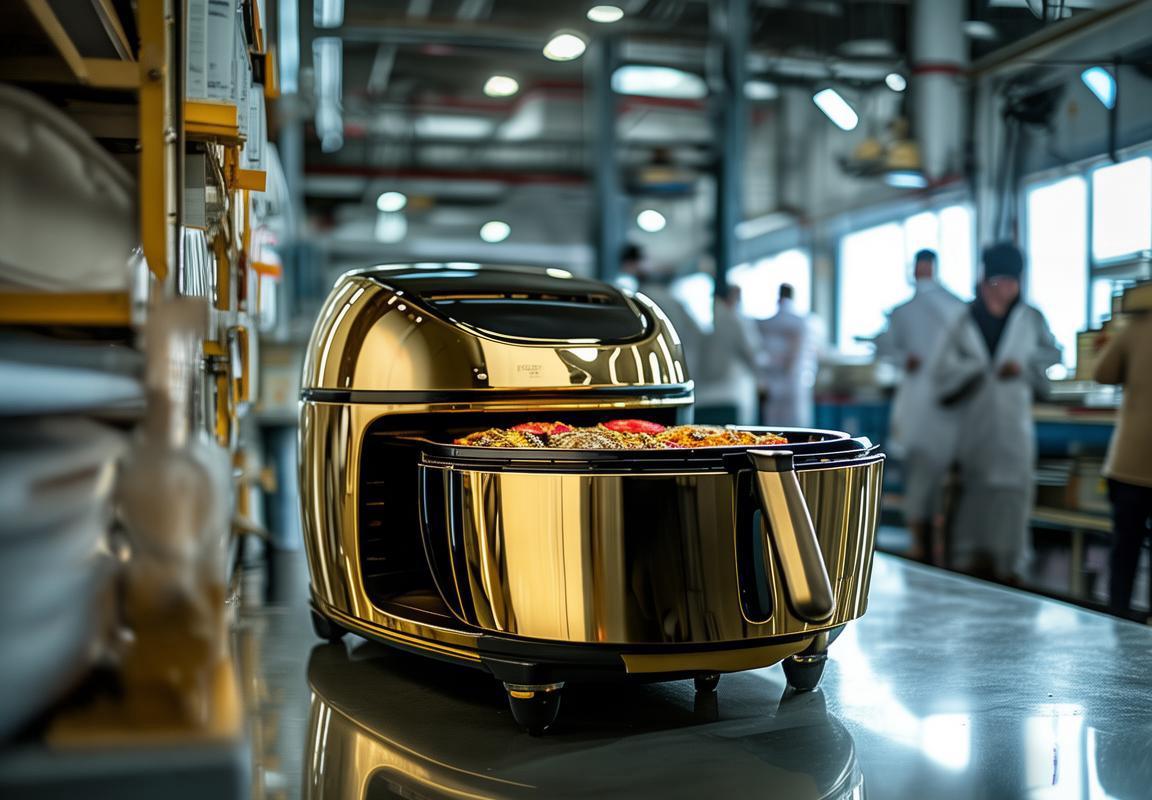
Researching Factory Reputation and Reviews
Navigating through the vast sea of air fryer manufacturers can be daunting, but understanding the key indicators of a trustworthy manufacturer is crucial. Here’s how to sift through the noise and find a reputable factory.
-
Customer Feedback: Look for reviews and testimonials from past clients. These can be found on the manufacturer’s website, third-party review platforms, and social media. Pay attention to the consistency of feedback, as a pattern of positive experiences is a strong sign of reliability.
-
Industry Recognition: Awards and accolades from reputable industry organizations can speak volumes about a manufacturer’s quality and innovation. Check if the factory has been recognized by any notable bodies within the appliance or kitchen equipment sector.
-
Product Range and Innovation: A diverse product line and a history of innovation can indicate a manufacturer’s commitment to staying ahead of the curve. A factory that regularly introduces new models or features suggests a focus on quality and customer satisfaction.
-
Certifications and Compliance: Ensure that the factory adheres to international standards and has the necessary certifications. Look for certifications like ISO, CE, and UL, which guarantee that the manufacturing processes meet stringent quality and safety requirements.
-
Supply Chain Transparency: A reliable manufacturer should be transparent about their supply chain. This includes information on the sourcing of materials, the use of environmentally friendly practices, and ethical labor standards.
-
After-Sales Service: The level of after-sales service can be a significant indicator of a manufacturer’s trustworthiness. Check if they offer warranty support, repair services, and customer support. A factory that stands behind its products is more likely to be reliable.
-
Testimonials from Distributors and Retailers: Distributors and retailers often have a firsthand experience with the manufacturers they work with. Reach out to them for their insights and experiences, as they can provide an unbiased view of the manufacturer’s reliability.
-
Length of Operation: The longevity of a manufacturer in the industry can be an indicator of their stability and reliability. A company that has been in business for several years is more likely to have a solid reputation and a proven track record.
-
Communication and Responsiveness: How the factory communicates with potential clients can reveal a lot about their reliability. Prompt, clear, and professional communication is a sign of a manufacturer that values its customers and is committed to providing a good experience.
-
Technical Support and Training: A manufacturer that offers comprehensive technical support and training to its customers is invested in the long-term success of their products. This support can be crucial, especially when dealing with complex kitchen appliances.
-
Community Engagement: Companies that actively engage with their community and participate in industry events are often more invested in their reputation. Look for signs of community involvement, as this can indicate a sense of responsibility and commitment.
-
Social Responsibility: A trustworthy manufacturer often has a strong social responsibility policy. This can include initiatives related to sustainability, environmental protection, and community welfare. It’s a sign of a company that values more than just profit.
-
Customization and Flexibility: The ability to customize products or offer tailored solutions can be a good indicator of a manufacturer’s expertise and customer focus. It shows that they are willing to go the extra mile to meet specific needs.
-
Market Presence: A strong presence in the market, whether through a wide distribution network or a significant market share, can suggest that a manufacturer is reliable and has a solid customer base.
-
Financial Stability: While it’s not always possible to know the financial details of a manufacturer, a general sense of financial stability can be gleaned from their size, market standing, and financial news.
By carefully considering these indicators, you can make a more informed decision when selecting a reliable air fryer factory. Remember, thorough research and due diligence are key to finding a partner you can trust.
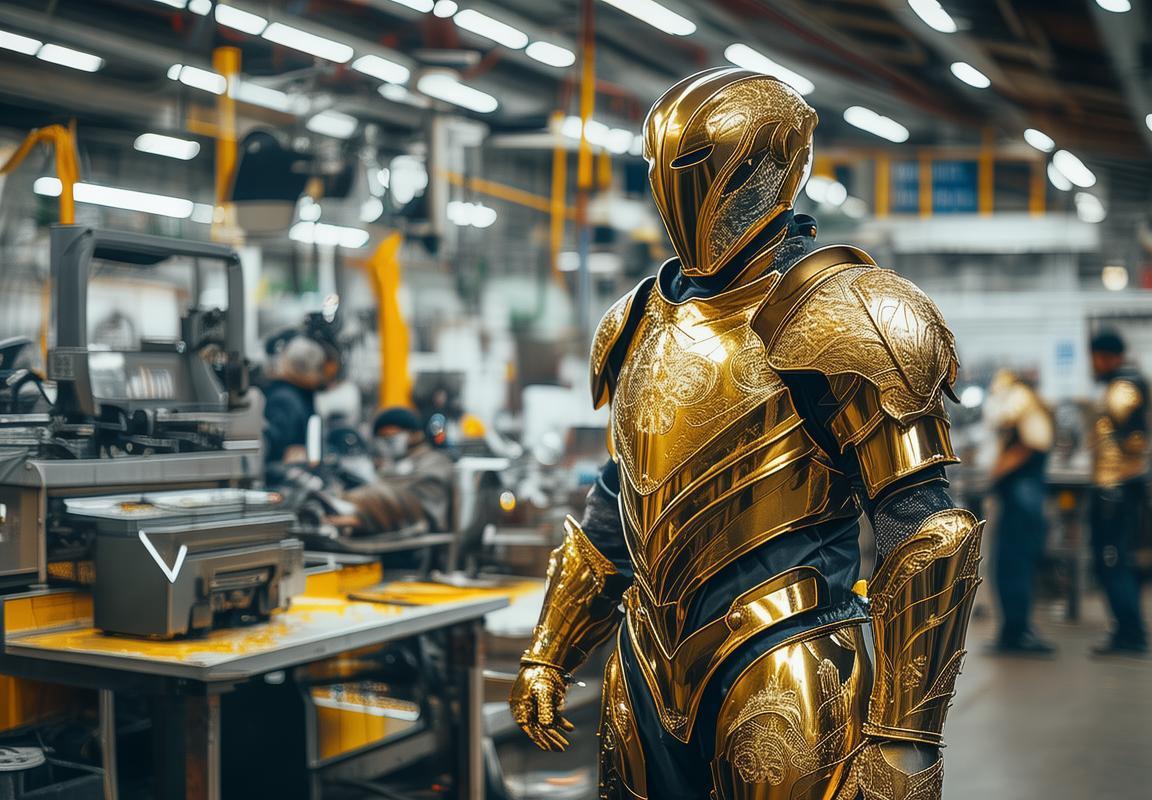
Quality Assurance and Standards
In the realm of air fryer manufacturing, the commitment to quality assurance and adherence to stringent standards is paramount. This meticulous process ensures that the end product meets the highest expectations of safety, performance, and durability. Let’s delve into the key aspects that define a manufacturer’s dedication to quality assurance and standards.
-
Robust Quality Control ProtocolsManufacturers who prioritize quality establish rigorous protocols to monitor every stage of the production process. This includes inspecting raw materials for purity and suitability, ensuring that components are assembled correctly, and testing finished products for functionality and reliability. A well-defined quality control system is the backbone of a trustworthy air fryer factory.
-
Continuous Improvement InitiativesA reliable manufacturer is always seeking ways to enhance their products and processes. This involves regular reviews of production methods, feedback from customers, and the adoption of new technologies. Continuous improvement ensures that the air fryers not only meet current standards but also exceed them over time.
-
Stringent Testing ProceduresBefore an air fryer leaves the factory, it must undergo a series of tests. These tests can range from electrical safety checks to performance evaluations, including heat distribution, cooking time, and energy efficiency. The manufacturer should have a comprehensive testing regimen that simulates real-world usage conditions to guarantee the longevity and safety of the product.
-
Compliance with International Safety StandardsA reputable air fryer factory adheres to international safety standards such as those set by the Underwriters Laboratories (UL), the International Electrotechnical Commission (IEC), and the European Committee for Electrotechnical Standardization (CENELEC). Compliance with these standards ensures that the product is safe for use in various markets around the world.
-
Material Selection and QualityThe choice of materials is critical in the manufacturing of air fryers. High-quality components not only contribute to the durability of the product but also affect its performance. A reliable manufacturer will use materials that are resistant to heat, corrosion, and wear, ensuring that the air fryer stands up to frequent use.
-
Environmental ConsiderationsIn today’s market, environmental responsibility is a significant factor in quality assurance. Manufacturers who are committed to sustainability will use eco-friendly materials, minimize waste, and ensure that their production processes are energy-efficient. This not only benefits the environment but also reflects positively on the brand’s reputation.
-
Customer Feedback and SatisfactionA good indicator of a manufacturer’s focus on quality is their responsiveness to customer feedback. They should have systems in place to collect and analyze customer satisfaction data, and they should be proactive in addressing any issues that arise. This feedback loop is essential for continuous improvement and maintaining high standards.
-
Training and Certification of EmployeesThe skill level of the employees at an air fryer factory plays a crucial role in the quality of the final product. Manufacturers who invest in training their staff ensure that each employee is knowledgeable about the production process and the importance of quality. Additionally, certifications can validate the expertise and commitment to quality of the workforce.
-
Transparent Manufacturing ProcessesTransparency in manufacturing processes is a sign of a manufacturer’s confidence in their product. They should be willing to provide detailed information about their production methods, materials used, and quality control measures. This openness builds trust with customers and stakeholders.
-
Warranty and After-Sales ServiceA reliable air fryer factory stands behind its products with a solid warranty and comprehensive after-sales service. This commitment to customer support is a clear demonstration of the manufacturer’s belief in the quality and durability of their air fryers.
By focusing on these aspects of quality assurance and standards, an air fryer manufacturer can ensure that their products not only meet but exceed the expectations of consumers, thereby establishing a reputation for excellence in the market.
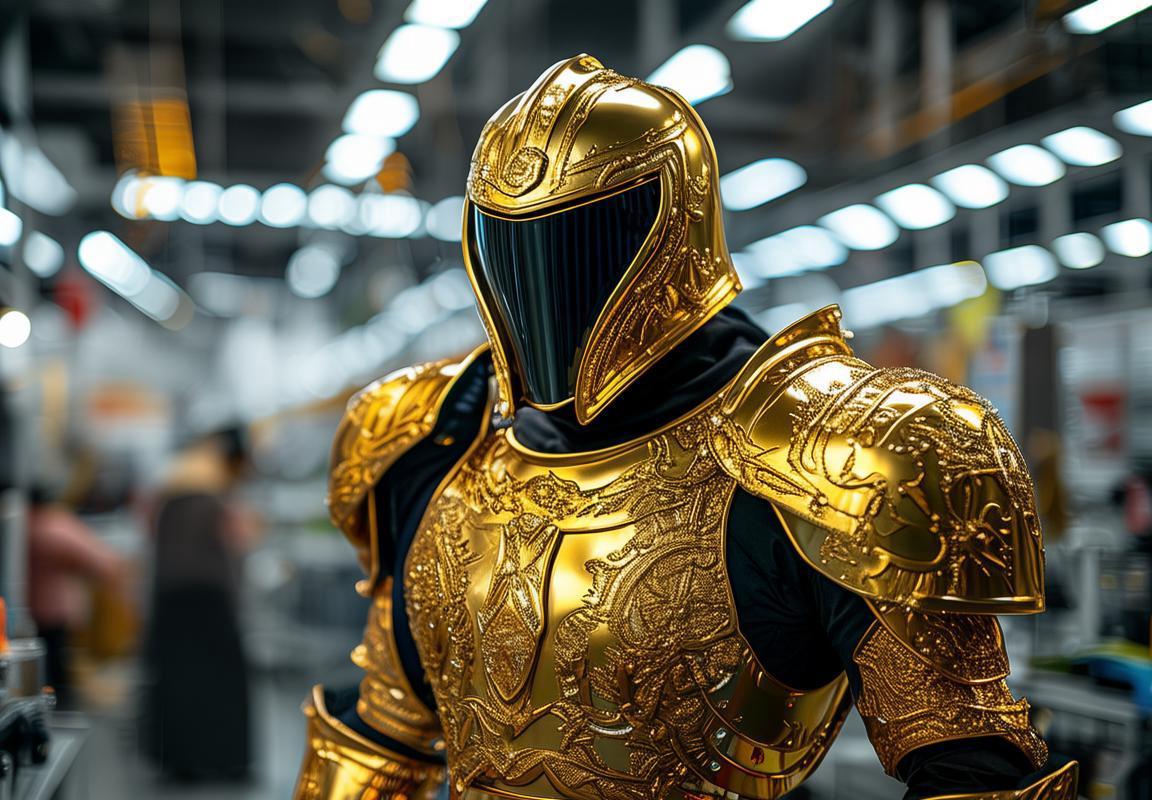
Checking Certifications and Compliance
Understanding the significance of certifications and compliance in the manufacturing process is crucial for ensuring the quality and safety of products. Here’s a closer look at what these aspects entail and why they matter:
-
Ensuring Safety and Health Regulations are MetCertifications like ISO 9001, ISO 14001, and OHSAS 18001 are not just pieces of paper; they are rigorous standards that manufacturers must adhere to in order to guarantee the safety and health of their workers and the end-users of their products. These certifications require regular audits and ongoing improvements, which means that a factory with these accreditations is likely to have a strong focus on safety protocols.
-
Compliance with Industry-Specific RegulationsDifferent industries have their own set of regulations and standards. For instance, the food industry has stringent standards to prevent contamination and ensure product quality. When an air fryer factory has certifications such as HACCP (Hazard Analysis and Critical Control Points) or FDA compliance, it signifies that the factory meets the necessary requirements for producing safe and compliant kitchen appliances.
-
The Role of International CertificationsInternational certifications like CE (Conformité Européenne) mark, which indicates that a product meets EU health, safety, and environmental requirements, are vital for global market access. These certifications can be a game-changer for manufacturers looking to expand their reach into new markets, as they often serve as a shortcut for potential buyers who recognize the brand’s adherence to high standards.
-
Environmental ResponsibilityCertifications like ISO 14001 focus on environmental management and sustainability. An air fryer factory with this certification is likely to have implemented practices that reduce waste, minimize energy consumption, and ensure that their operations have a minimal environmental footprint. This is not only good for the planet but also for the brand’s reputation among eco-conscious consumers.
-
Quality Control and Continuous ImprovementCertifications often require manufacturers to establish and maintain a quality management system (QMS). This means that the factory must have a structured approach to quality control, including regular inspections, testing, and feedback loops that drive continuous improvement. A factory with a strong QMS is more likely to produce consistently high-quality products.
-
Consumer Trust and ConfidenceWhen a product carries a certification, it acts as a trust signal to consumers. They can be confident that the air fryer they’re purchasing has been manufactured in accordance with recognized standards. This trust can be the deciding factor in a competitive market where consumers are looking for reassurance about the quality and safety of their purchases.
-
Reducing Risks and Legal LiabilitiesBy ensuring compliance with various certifications, a factory can significantly reduce the risks associated with non-compliance. Legal liabilities can be substantial, including fines, recalls, and damage to the brand’s reputation. Certifications serve as a form of insurance against such risks.
-
Supply Chain IntegrityCertifications also extend to the supply chain. Factories may have certifications for their suppliers to ensure that the entire production process, from raw materials to finished goods, meets the required standards. This integrity is crucial for maintaining product quality and consistency.
-
Keeping Up with Technological AdvancementsCertifications often require manufacturers to stay abreast of the latest technological advancements and incorporate them into their processes. This means that a factory with certifications is likely to be at the forefront of innovation, which can translate into better products and a competitive edge.
-
Global Market AccessFor manufacturers aiming to export their products, certifications can be a gateway to new markets. Many countries have specific requirements for importing goods, and having the necessary certifications can simplify the customs process and speed up market entry.
In conclusion, checking for certifications and compliance is a comprehensive way to assess a manufacturer’s commitment to quality, safety, and sustainability. It’s a critical step for buyers to ensure they are investing in products that meet or exceed the expected standards.
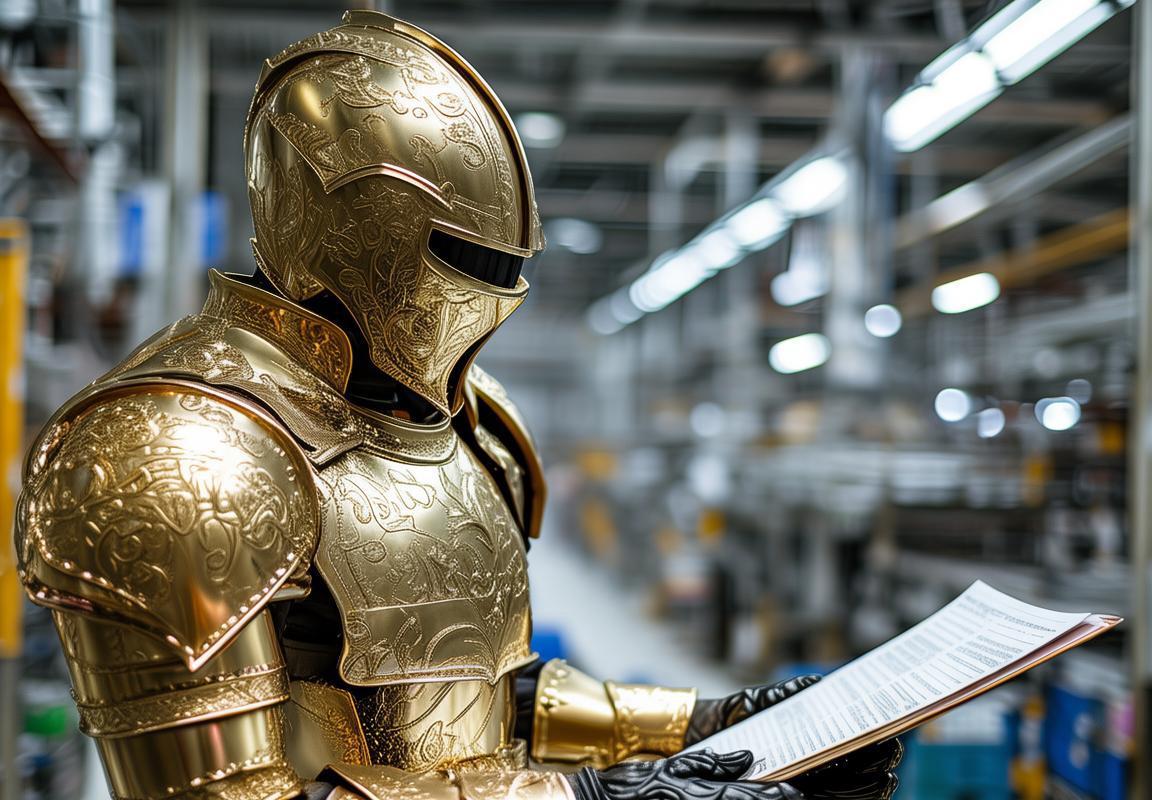
Factory Visits and Inspections
Understanding the intricacies of a factory through a physical visit can offer invaluable insights that go beyond what a simple online search or review can reveal. Here’s what you might expect from such an experience:
The first thing you might notice upon arrival is the overall atmosphere of the factory. Is it bustling with activity, or does it have a more relaxed pace? A well-organized and busy factory can be a sign of efficient operations and a high demand for their products.
You’ll want to observe the cleanliness and orderliness of the workspace. A factory that maintains a clean environment is likely to pay attention to detail in other aspects of their operations. Look for dust-free floors, organized workstations, and a systematic approach to waste management.
During your tour, pay close attention to the machinery and equipment. Are they modern and well-maintained, or are they outdated and showing signs of wear? Up-to-date equipment can indicate a commitment to staying current with industry standards and technology.
Inspect the raw materials storage area. How are the materials stored? Are they properly labeled and protected from contamination? This can tell you a lot about the factory’s approach to quality control and adherence to safety regulations.
Observe the assembly line. Is it efficient, or are there bottlenecks? Workers should be able to move seamlessly through the process, and there should be minimal downtime. An efficient assembly line is a good indicator of a factory’s ability to meet production deadlines.
Engage with the employees. Are they knowledgeable about the products they’re manufacturing? Are they dressed in appropriate attire and do they appear motivated and well-trained? A factory with well-informed and engaged staff is more likely to produce high-quality goods.
Take a look at the quality control processes in place. Are there multiple checkpoints throughout the production line? Are products being tested at various stages to ensure they meet the required standards? A robust quality control system is crucial for maintaining product integrity.
Don’t overlook the documentation. Is there a clear record of each batch of products, including certifications and test results? A factory that keeps thorough records is likely to be more organized and transparent in their operations.
During your visit, don’t hesitate to ask questions. Inquire about the factory’s certifications and what they mean for the quality of the products. For example, ISO 9001 certification indicates a focus on quality management, while CE marking can signify compliance with European safety standards.
Observe how the factory handles returns and customer complaints. A factory that takes these seriously and has a clear process for addressing issues is one that values customer satisfaction.
Another aspect to consider is the factory’s environmental practices. Are there recycling programs in place? Are they energy-efficient? A factory that cares about the environment is likely to be more mindful of quality and sustainability in their production processes.
Finally, consider the factory’s history and market reputation. How long have they been in business? What are their clients saying about them? A long-standing presence and positive feedback from customers can be strong indicators of a reliable manufacturer.
Remember, a factory visit is not just about seeing the end product; it’s about understanding the entire process. By observing these details, you can gain a clearer picture of the factory’s commitment to quality, safety, and customer satisfaction.
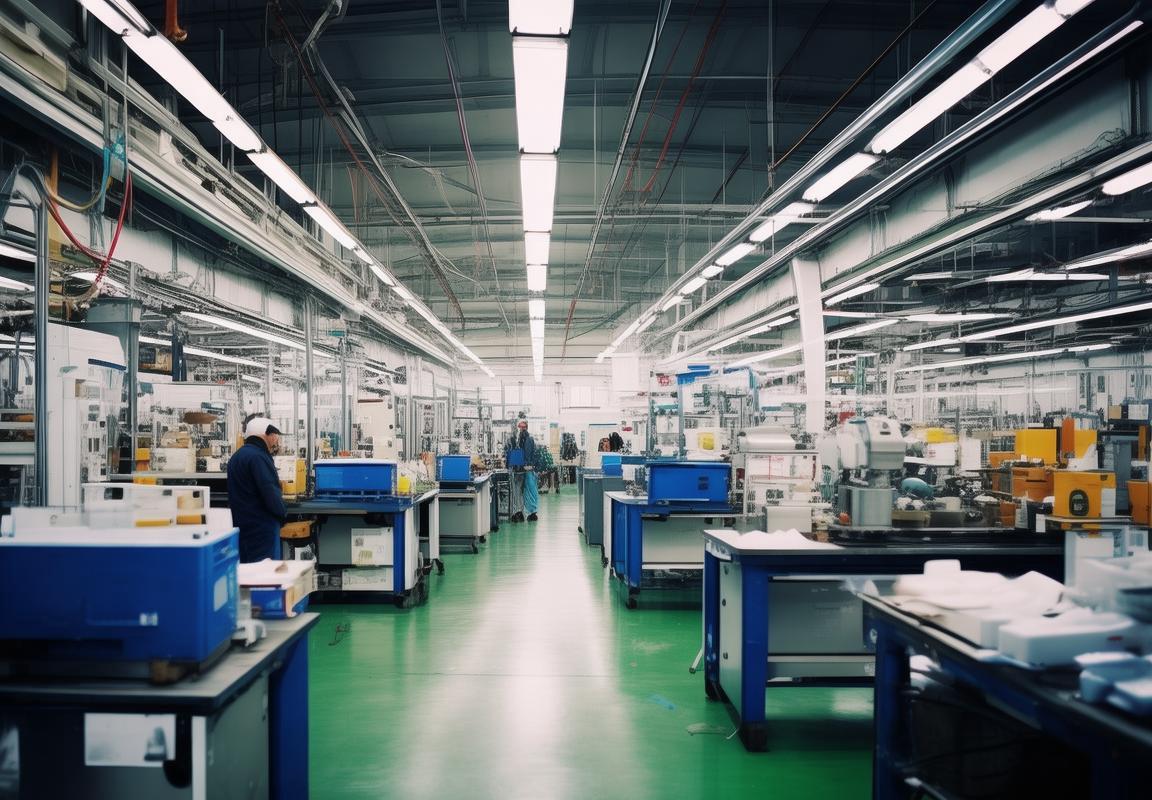
Networking and Industry Connections
Navigating the world of factory visits and inspections can be a critical step in ensuring the quality and reliability of the products you’re considering. It’s not just about physically seeing the facilities; it’s about understanding the processes, the people, and the culture that underpins the operation. Here’s what to keep in mind during your visit:
-
Observing Workflow: As you walk through the factory, pay close attention to the workflow. Are the production lines efficient, or do they seem cluttered and disorganized? Efficient workflows often indicate a well-managed operation.
-
Equipment and Tools: Look at the machinery and tools used in the production process. Are they modern and well-maintained? Outdated or poorly maintained equipment can be a red flag for quality control issues.
-
Employee Engagement: Notice how employees interact with each other and with the equipment. Engaged and knowledgeable workers are often a sign of a company that values its team and their contributions.
-
Quality Control Stations: Check for dedicated quality control stations where products are inspected. The presence of these stations and the thoroughness of the checks can give you insight into the company’s commitment to quality.
-
Raw Material Storage: The way raw materials are stored can tell you a lot about a factory’s standards. Are they organized, protected from contaminants, and kept in optimal conditions?
-
Cleanliness: Cleanliness is often a reflection of a company’s attention to detail. A factory that maintains a clean environment is more likely to pay attention to the cleanliness of its products.
-
Safety Measures: Safety protocols are crucial. Look for safety equipment, such as protective gear for employees and emergency exits. A factory that prioritizes safety is likely to prioritize quality as well.
-
Documentation: Observe how the factory handles documentation. Are there clear records of production processes, quality checks, and certifications? Proper documentation is key to maintaining consistent standards.
-
Feedback Mechanisms: Check if there are systems in place for receiving feedback from employees and customers. A company that actively seeks and acts on feedback is more likely to improve its processes.
-
Technology Integration: Modern factories often use technology to enhance production and quality control. Look for automated systems, robotics, and other technological advancements that can improve efficiency and accuracy.
-
Certification and Compliance: Make sure to inquire about any certifications the factory holds and how they comply with industry standards. Certifications like ISO, CE, and UL are important indicators of quality.
-
Communication and Transparency: A factory that is open and communicative about its processes and standards is more trustworthy. Ask questions and observe how the management responds.
-
Long-Term Relationships: Consider the factory’s history with its customers. Long-standing relationships can be a sign of reliability and customer satisfaction.
-
Environmental Responsibility: Look for any initiatives the factory has in place to minimize environmental impact. This can include recycling programs, energy-efficient practices, and sustainable sourcing.
-
Expansion and Innovation: A factory that is continually investing in expansion and innovation is likely to stay ahead of the curve and maintain high-quality standards.
Remember, a factory visit is not just about checking off a box; it’s about gaining confidence in the product and the company behind it. Take your time to thoroughly inspect and ask questions. The insights you gain from these interactions can be invaluable in making an informed decision about your partnership.
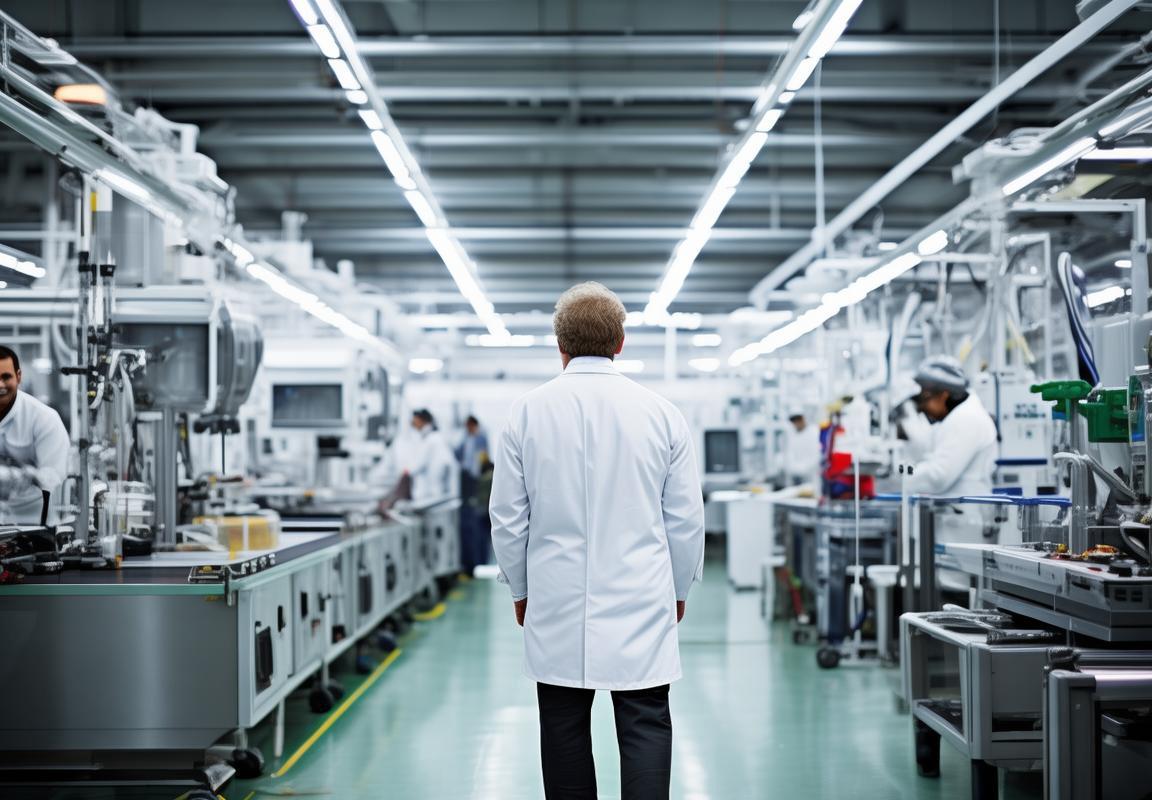
Requesting Samples and Testing
In the world of business, especially when dealing with manufacturing, the importance of thorough product testing cannot be overstated. Requesting samples and conducting rigorous testing is a critical step in ensuring that the products you’re considering meet your standards and expectations. Here’s how this process can unfold:
Understanding the Purpose of Sample TestingBefore diving into the specifics of requesting samples, it’s important to understand why this step is crucial. Sample testing allows you to gauge the quality, durability, and functionality of the product firsthand. It’s an opportunity to see if the product aligns with your brand’s image and customer needs.
Selecting the Right SamplesWhen you’re in the market for new products, the sheer volume of options can be overwhelming. It’s essential to be selective about the samples you request. Look for products that cater to your target market, align with your product line, and offer something unique. The more targeted your sample selection, the more meaningful the feedback will be.
Contacting the ManufacturerOnce you’ve identified the products you’re interested in, the next step is to reach out to the manufacturer. Be clear and concise in your communication, specifying the products you want to sample and the reasons for your interest. A well-worded inquiry can lead to a smoother process and a more positive response.
Receiving the SamplesAfter you’ve made your request, you’ll need to wait for the samples to arrive. This can be a nerve-wracking time, as the quality of the sample can greatly influence your decision. When the samples do arrive, inspect them for any damage or discrepancies right away to ensure they are the correct items.
Conducting Initial InspectionsUpon receiving the samples, it’s time to conduct an initial inspection. Look for any signs of defects, such as loose parts, inconsistencies in design, or poor workmanship. Check the packaging for any damage that could indicate a lack of care in handling during shipping.
Testing for QualityQuality testing involves more than just a visual inspection. Depending on the product, you may need to test for durability, safety, and performance. This can include stress tests, functionality checks, and even taste tests for consumables. Documenting your findings as you go can be invaluable for making an informed decision.
Seeking Feedback from StakeholdersIt’s not just about your personal opinion; gathering feedback from different stakeholders is key. If the product is intended for a business, involve your team, sales staff, and potentially customers in the testing process. Their insights can provide a more rounded perspective on the product’s potential.
Analyzing the ResultsOnce the testing is complete, analyze the results carefully. Consider both the strengths and weaknesses of the product. Are there any areas that need improvement? Do the products meet your quality standards? This analysis should help you determine whether the product is a good fit for your business.
Handling Issues and NegotiatingIf the samples don’t meet your expectations, it’s important to address any issues promptly. This might involve discussing quality concerns with the manufacturer, requesting additional samples, or even considering alternative products. Negotiating with suppliers is a normal part of the business process and can often lead to mutually beneficial outcomes.
Following Up and Making a DecisionAfter the testing period is over, follow up with the manufacturer to express your findings. Whether you choose to proceed with a purchase or not, it’s good practice to maintain a professional relationship. If you decide to move forward, discuss the next steps, including quantities, pricing, and delivery schedules.
Remembering the Importance of TestingFinally, take a moment to reflect on the importance of this process. Requesting samples and conducting thorough testing is not just about choosing a product; it’s about building trust with your customers and ensuring that your brand delivers on its promises. Every product you bring to market should be a reflection of the quality and standards you’ve set for your business.
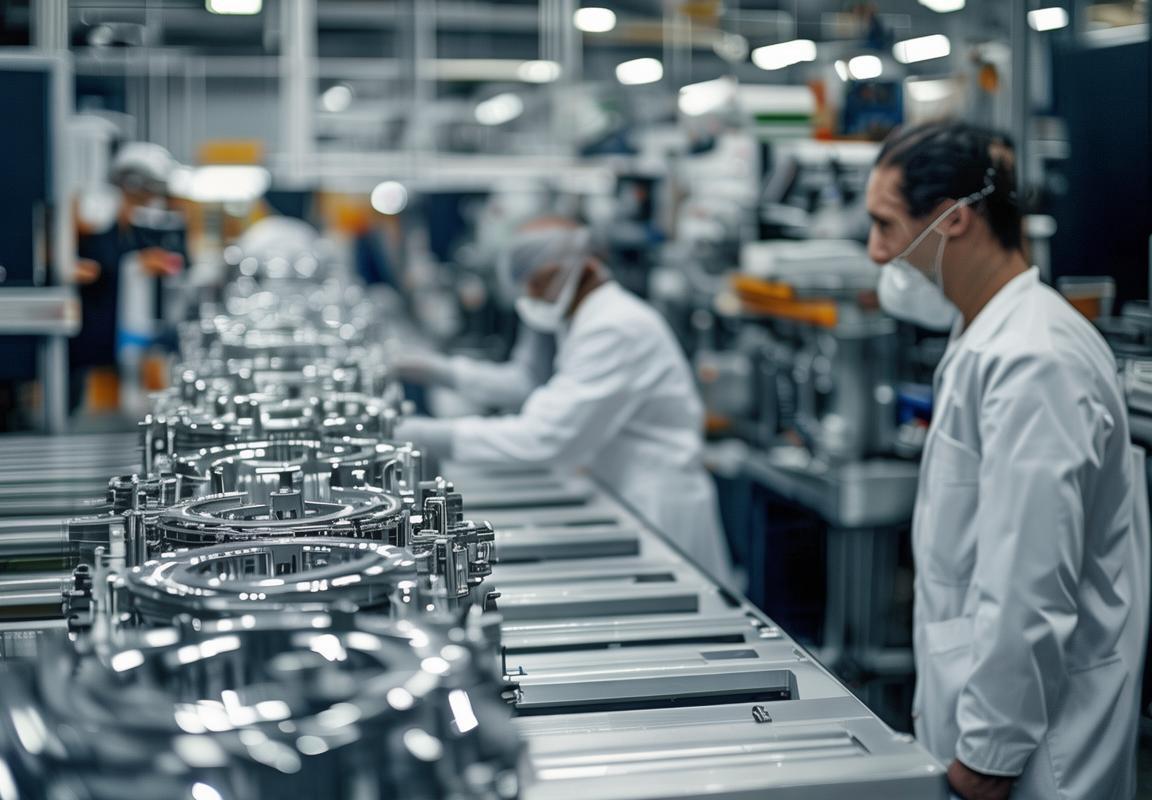
Understanding Pricing and Value for Money
Understanding the intricacies of pricing and the value for money when dealing with air fryer factories can be a pivotal aspect of securing the best deals without compromising on quality. Here’s a closer look at how to navigate this financial maze:
The Art of NegotiationNegotiating with suppliers can sometimes feel like a high-stakes game of chess. However, knowing how to approach the conversation can make all the difference. It’s about finding that sweet spot where the price aligns with the quality and specifications you need. Always remember that a lower price isn’t always the best indicator of value; sometimes, a slightly higher cost can lead to better durability and performance over time.
Cost Breakdowns and Hidden FeesDigging into the cost breakdown is essential. A reputable air fryer factory should be transparent about all costs, including raw materials, labor, and any additional fees. Be wary of factories that hide costs, as this could be a sign of hidden expenses that may pop up later. Ask for a detailed breakdown to ensure that the price you’re paying is justified.
Comparing Quotes from Multiple SourcesNever settle for just one quote. Reach out to several air fryer factories to get a range of prices. This comparison shopping will not only help you find the best value but also provide insight into how competitive the market is. It’s also a good way to gauge the level of service each factory offers.
Understanding Market TrendsThe price of air fryers can fluctuate based on market trends, supply and demand, and even currency exchange rates. Being aware of these trends can help you make informed decisions. If the market is flooded with a particular model, you might find better deals. Conversely, if there’s a shortage, expect to pay more.
Value-Added ServicesSometimes, what seems like a higher price tag can be justified by the additional services provided. Consider factories that offer value-added services such as product customization, branding, or even after-sales support. These services can enhance the perceived value of the product, making the higher price more palatable.
Long-Term Relationships vs. One-Off DealsThink about the nature of your business relationship. Are you looking for a one-time supplier, or do you envision a long-term partnership? Long-term relationships can often lead to better pricing as suppliers are more likely to offer discounts or bulk purchase deals. However, make sure that the value for money remains consistent over time.
The Role of Branding and QualityBranding can significantly influence pricing. A well-known brand may demand a premium price, but if the quality and reliability of their air fryers justify the cost, it could be a wise investment. Assess the brand’s reputation and how it aligns with your product line’s image.
Evaluating the Factory’s EfficiencyA factory’s efficiency can also impact the price you pay. More efficient production processes can lead to lower costs. If a factory is known for its streamlined operations, it might be able to offer more competitive pricing without sacrificing quality.
Considering Market Entry CostsWhen evaluating pricing, don’t forget to factor in market entry costs. This includes any additional expenses you might incur to introduce the air fryers to your target market. A higher upfront cost might be worth it if it results in a successful product launch.
Longevity of the ProductFinally, consider the longevity of the product. An air fryer that’s built to last can save you money in the long run by reducing the frequency of replacements and repairs. This longevity is a form of value for money that often isn’t immediately apparent in the price tag.
In conclusion, understanding pricing and value for money involves a multi-faceted approach. It’s about balancing quality, efficiency, market conditions, and the long-term implications of your business decisions. By carefully considering these factors, you can make informed choices that align with your business goals and customer expectations.

Building Long-Term Relationships
Understanding the intricacies of pricing can be a complex task, especially when it comes to evaluating the value for money in the. Here’s a deeper dive into what it takes to make an informed decision:
The cost of a product is often the first thing that catches the eye, but it’s not always the most telling factor. You might find two air fryers priced similarly, but one could offer a better build quality, advanced features, or a longer lifespan. It’s about finding that sweet spot where the price aligns with the quality and durability of the product.
Consider the lifespan and the longevity of the product when assessing value. An air fryer that might cost a bit more upfront could save you money in the long run due to its durability and the fact that it won’t need to be replaced as frequently as a cheaper model.
Don’t underestimate the importance of after-sales service. A manufacturer that stands behind their product with reliable customer support and warranty services can significantly enhance the value of the purchase.
The value for money also hinges on the after-sales support. A product might seem expensive, but if it comes with comprehensive warranty coverage and excellent customer service, it can be seen as a worthwhile investment.
Features play a crucial role in determining the value. While a budget-friendly model might be enticing, it might lack features that are essential for your needs. Prioritize the features that matter most to you and ensure that the price reflects the value those features bring.
The reputation of the brand can also impact the perceived value. Established brands often command higher prices due to their quality and reliability, but they might offer better value due to their brand prestige and customer loyalty.
Remember, the cheapest option isn’t always the best. Sometimes, paying a bit more for a product that is well-built, has a good reputation, and offers excellent performance is a better deal in the long term.
Keep in mind that sometimes, a higher price can mean a better quality of materials and manufacturing processes. A well-constructed air fryer might use higher-grade components, leading to a more energy-efficient and longer-lasting product.
Be wary of hidden costs. While the initial price tag might be low, there could be additional expenses such as maintenance, repair, or replacement parts that could offset the savings in the short term.
Consider the energy efficiency of the product. An air fryer that uses less energy can save you money on your utility bills over time, which is an important aspect of the overall value for money.
The warranty and guarantee period also speak volumes about the value. A longer warranty period often means the manufacturer has confidence in their product’s quality.
The value for money is subjective and varies from person to person. What’s most important is that the price you pay reflects the quality and functionality of the product in line with your expectations and needs.
Lastly, don’t forget to factor in your personal preferences and brand loyalty. Sometimes, paying a premium for a brand you trust can be worth it, especially if it means you’re investing in a product that aligns with your lifestyle and preferences.